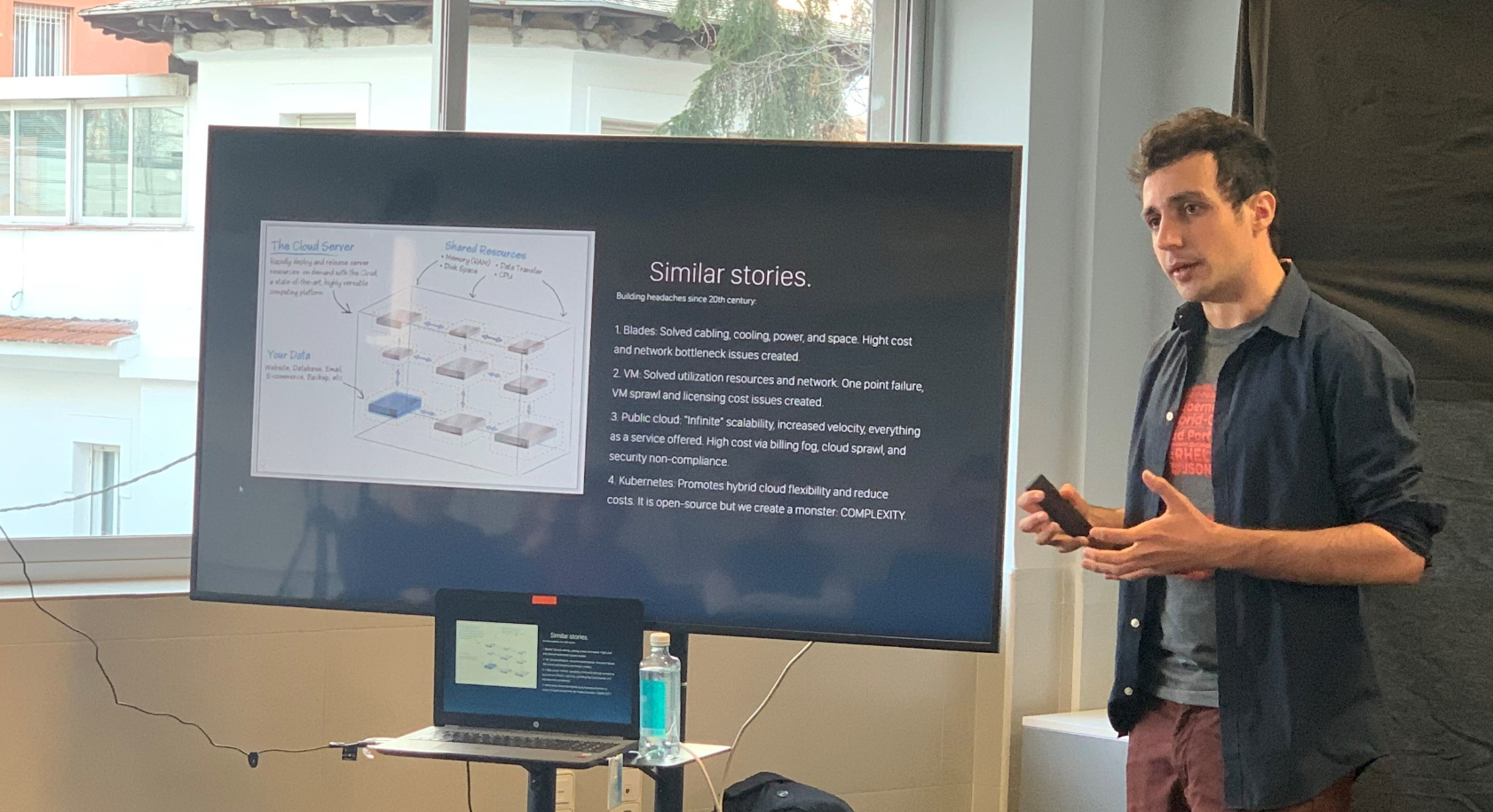Starting the year with one special Master Breakfast, this time we gave a warm welcome to David Hernández, a problem solver and lover of Python (Programming Language with dynamic semantics). Additionally, David is a Technical Support Engineer at Red Hat. During his visit David addressed the revolution that Kubernetes have brought into cloud environments, virtually through containers.
Transformation through technology can be traced back tens of years with the boom of the Internet, or maybe hundreds of years ago with the invention of the print. When we talk about Digital Transformation, we are referring to the process of using digital technologies in order to create new or modified business processes, company culture and customers experiences that can meet the ever changing market requirements.
The technologies that stimulate digital transformation such as big data, mobile, cloud, containers and Kubernetes can all are considered open source. As digital transformations are technology-driven, this makes them open source as well. Moreover, open source refers to any program whose source code is made available for use or modification.

Consequently, there comes the Kubernetes also known as K8S, though it is easy to get lost in the details of Kubernetes, it basically acts as a container or microservice platform that orchestrates computing, networking, and storage infrastructure workloads. Kubernetes make it easier to arrange and operate applications in a microservice architecture. It does so by creating an abstraction layer on top of a group of hosts, so that development teams can deploy their applications and let Kubernetes manage key elements. Professionals have turned it for four main reasons.
-
Kubernetes allows you to deliver a self-service Platform as a Service (PaaS)
-
Kubernetes is cost efficient
-
Kubernetes can run on Amazon Web Services (AWS), Microsoft Azure, and the Google Cloud Platform (GCP). Meaning that the team can move workloads without having to redesign applications or completely rethink infrastructures
-
Amazon EKS, Google Cloud Kubernetes Engine, Azure Kubernetes Service (AKS), Red Hat Openshift, and IBM Cloud Kubernetes Service all provide a full Kubernetes platform management
As a result, being open to change and to adopting new technologies has never been easier. As the world evolves, it also brings with it many tools to manage these modifications for any business to implement them without losing their minds or breaking their budgets.



